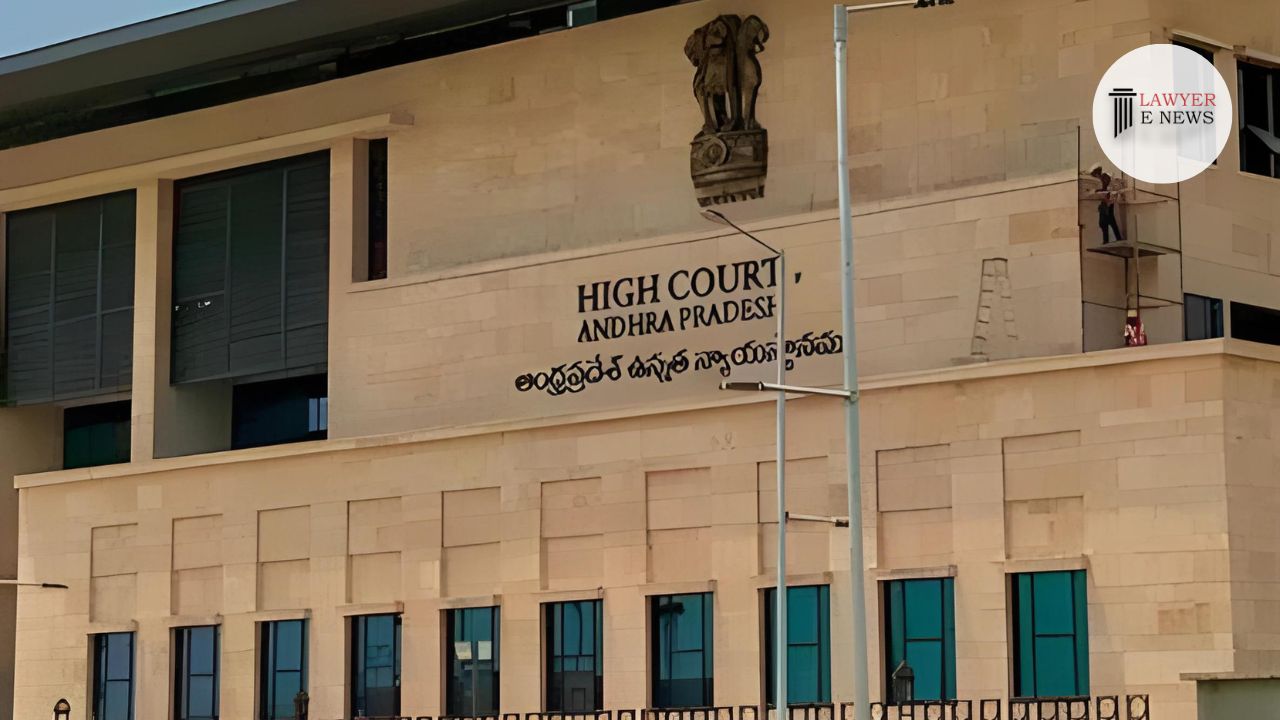-
by sayum
14 February 2026 2:22 PM



In the case of Guttula Johnson v. Pulla Govindu, the Andhra Pradesh High Court dismissed a second appeal filed by the appellant, Guttula Johnson, after both lower courts had rejected his suit for permanent injunction. The case revolved around a dispute over property ownership and boundaries, where the appellant failed to prove the exact location and possession of the contested land. The court reaffirmed that "boundaries prevail over survey numbers" in such disputes and highlighted significant procedural lapses by the appellant throughout the case.
The appellant, Guttula Johnson, originally filed O.S. No. 162 of 2009 in the Principal Junior Civil Judge’s Court, Kakinada, seeking a permanent injunction to restrain the respondent, Pulla Govindu, and his men from interfering with his possession of two plots of land. Johnson claimed that he had purchased plot No. 49 and plot No. 37 through registered sale deeds in 2008 and 2009, respectively, and that Govindu was trying to trespass on the property.
In response, the respondent contended that his father had purchased the disputed land in 1962, and that an oral partition had been made within the family in 1982, giving the respondent rights over the land. The trial court dismissed both Johnson’s suit and Govindu’s counter-suit. Johnson then filed an appeal, A.S. No. 105 of 2015, which was also dismissed by the IV Additional District Judge, Kakinada. Johnson subsequently filed this second appeal before the High Court.
The primary legal questions considered by the High Court were:
Whether the absence of a complete report from the court-appointed Advocate Commissioner could be a material factor in deciding the case.
Whether the lower courts had erred in applying legal precedents concerning property identification and possession.
Justice Venuthurumalli Gopala Krishna Rao upheld the findings of the lower courts, noting that the appellant failed to identify his property on the ground. The court emphasized that in a suit for permanent injunction, the plaintiff must demonstrate clear possession of the disputed property at the time of filing the suit. Johnson’s inability to provide accurate boundaries and survey numbers for the property was a critical factor.
The court also noted that although an Advocate Commissioner had visited the property multiple times along with a Mandal Surveyor, Johnson failed to identify the plots. Additionally, no effort was made by either party to ensure a complete and accurate report from the Advocate Commissioner. The court ruled that Johnson's late request—12 years after the suit’s initiation—for a fresh Advocate Commissioner to visit the property could not be entertained.
A key element in the case was the court’s reliance on the legal principle that “boundaries prevail over survey numbers” when determining property ownership. The court observed that the appellant’s sale deeds did not provide clear boundary descriptions, and Johnson himself admitted that he could not pinpoint the exact location of his land. The court concluded that Johnson had failed to prove his possession of the disputed property as required in injunction suits.
The court further observed that Johnson’s claim of a cause of action—that the respondent and his men were threatening to trespass—was not supported by sufficient evidence. The suit was filed just one day after the alleged threat, which the court found suspicious and deemed to be a fabricated cause of action.
The High Court dismissed the second appeal, holding that both the trial court and the appellate court had rightly rejected the appellant’s claims. The court also dismissed all interlocutory applications filed by the appellant, including requests for interim relief and the appointment of a new Advocate Commissioner.
In summary, the court ruled that the appellant had failed to prove his case for a permanent injunction due to his inability to identify the property, establish possession, and provide accurate boundary details.
Date of Decision: October 14, 2024
Guttula Johnson v. Pulla Govindu
